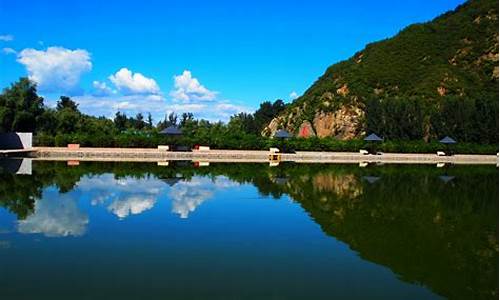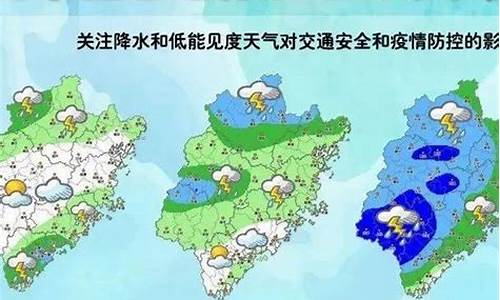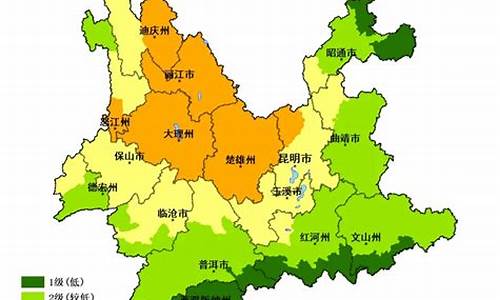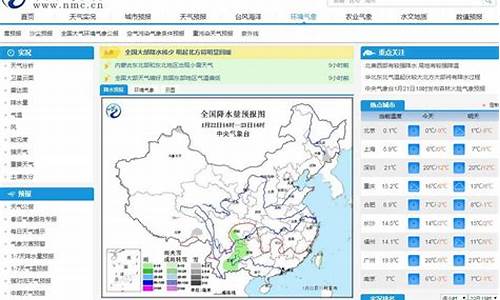气候分析英语_气候分析英文
1.关于气候对人类生活影响的英语作文80字左右
2.介绍某地天气的英语作文带翻译
3.用5个英语句子写一篇关于中国气候的短文
4.欲求一篇关于《英国的气候》的英语报告!?
5.英语作文气候对生活的影响80字数限制

The weather is a set of all the phenomena in a given atmosphere at a given time. It also includes interactions with the hydrosphere. The term usually refers to the activity of these phenomena over short periods (hours or days), as opposed to the term climate, which refers to the average atmospheric conditions over longer periods of time. When used without qualification, "weather" is understood to be the weather of Earth.
Weather most often results from temperature differences from one place to another. On large scales, temperature differences occur because areas closer to the equator receive more energy per unit area from the Sun than do regions closer to the poles. On local scales, temperature differences can occur because different surfaces (such as oceans, forests, ice sheets, or man-made objects) have differing physical characteristics such as reflectivity, roughness, or moisture content.
Surface temperature differences in turn cause pressure differences. A hot surface heats the air above it and the air expands, lowering the air pressure. The resulting horizontal pressure gradient accelerates the air from high to low pressure, creating wind, and Earth's rotation then causes curvature of the flow via the Coriolis effect. The simple systems thus formed can then display emergent behaviour to produce more complex systems and thus other weather phenomena. Large scale examples include the Hadley cell while a smaller scale example would be coastal breezes.
The strong temperature contrast between polar and tropical air gives rise to the jet stream. Most weather systems in the mid-latitudes are caused by instabilities of the jet stream flow (see baroclinity). Weather systems in the tropics are caused by different processes, such as monsoons or organized thunderstorm systems.
Because the Earth's axis is tilted relative to its orbital plane, sunlight is incident at different angles at different times of the year. In June the Northern Hemisphere is tilted towards the sun, so at any given Northern Hemisphere latitude sunlight falls more directly on that spot than in December (see Effect of sun angle on climate). This effect causes seasons. Over thousands to hundreds of thousands of years, changes in Earth's orbital parameters affect the amount and distribution of solar energy received by the Earth and influence long-term climate (see Milankovitch cycles).
On Earth, common weather phenomena include such things as wind, cloud, rain, snow, fog and dust storms. Less common events include natural disasters such as tornadoes, hurricanes and ice storms. Almost all familiar weather phenomena occur in the troposphere (the lower part of the atmosphere). Weather does occur in the stratosphere and can affect weather lower down in the troposphere, but the exact mechanisms are poorly understood.[1]
The atmosphere is a chaotic system, so small changes to one part of the system can grow to have large effects on the system as a whole. This makes it difficult to accurately predict weather more than a few days in advance, though weather forecasters are continually working to extend this limit through the scientific study of weather, meteorology. It is theoretically impossible to make useful day-to-day predictions more than about two weeks ahead, imposing an upper limit to potential for improved prediction skill.[1] Chaos theory says that the slightest variation in the motion of the ground can grow with time. This idea is sometimes called the butterfly effect, from the idea that the motions caused by the flapping wings of a butterfly eventually could produce marked changes in the state of the atmosphere. Because of this sensitivity to small changes it will never be possible to make perfect forecasts, although there still is much potential for improvement.
The sun and oceans can also affect the weather of land. If the sun heats up ocean waters for a period of time, water can evaporate. Once evaporated into the air, the moisture can spread throughout nearby land, thus making it cooler.
关于气候对人类生活影响的英语作文80字左右
The climate of the world is changing with the time go by.It`s has lead to many kinds of animals die out.It`s said that the reason of why the dinosaurs die out.
In fact ,as you know the world is becoming hotter and hotter.Many scientists think it is because of carbon dioxide, a gas which can keep warm.If the temperature of the world increase 2℃,the people will disappear.
so,let`s protect our earth now.
介绍某地天气的英语作文带翻译
Climate has an important influence in their daily lives. Agricultural production and climate are closely related, less rainfall, plant growth on the lack of the necessary water, probably died because of the drought. Will be excessive, plants can flood death. In the cities, rain and snow will affect traffic, caused traffic gridlock, flight delays, the ship suspended, seriously affecting production, at the same time, the temperature changes that can cause various diseases.
用5个英语句子写一篇关于中国气候的短文
写作思路及要点:围绕天气预报,介绍武汉的天气气候。
Wuhan, my hometown, is warm in spring and everything begins to grow.
我的家乡武汉春天很温暖,万物开始生长。
Summer is the hottest season. Many people go swimming in the Yangtze River.
夏天是最热的季节,很多人到长江中去游泳。
Autumn in Wuhan is neither cold nor hot like spring.
武汉的秋天象春天一样既不冷也不热。
Wuhan is very cold in winter, sometimes it snows.
武汉的冬天很冷,有时候会下雪。
People put on thick clothes.
人们都穿上厚厚的衣服。
欲求一篇关于《英国的气候》的英语报告!?
China has a marked continental monsoonal climate characterized by great variety.Northerly winds prevail in winter,while southerly winds reign in summer.The four seasons are quite distinct.The rainy season coincides with the hot season.From September to April the following year,the dry and cold winter monsoons from Siberia and Mongolia in the north gradually become weak as they reach the southern part of the country,resulting in cold and dry winters and great differences in temperature.The summer monsoons last from April to September.
The warm and moist summer monsoons from the oceans bring abundant rainfall and high temperatures,with little difference in temperature between the south and the north.China’s complex and varied climate results in a great variety of temperature belts,and dry and moist zones.In terms of temperature,the nation can be sectored from south to north into equatorial,tropical,sub-tropical,warm-temperate,temperate,and cold-temperate zones; in terms of moisture,it can be sectored from southeast to northwest into humid (32 percent of land area),semi-humid (15 percent),semi-arid (22 percent) and arid zones (31 percent).
从中找几个句子都可以
英语作文气候对生活的影响80字数限制
Britain is an island country and the surrounding sea gives England a varied climate. We never know what the weather will be like from one day to the other. It can be sunny one day and rainy the next. As we have such a variable climate changing from from day to day, it is difficult to predict the weather. In general we have warm summers and cool winters. Our summers are cooler than those on the continent, but the winters are milder.
Temperate Climate
The overall climate in England is called temperate maritime. This means that it is mild with temperatures not much lower than 0?0?2C in winter and not much higher than 32?0?2C in summer. It also means that it is damp and is subject to frequent changes.
Warmest and coldest months
July and August are normally the warmest month in England.
Around the coasts, February is normally the coldest month, but inland there is little to choose between January and February as the coldest month.
Best months to travel to England
Probably the best months to travel in England are May, June, September and October. These months generally have the most pleasant temperatures and less rain. July and August are the warmest months, but they are also the wettest. The sunniest parts of the Britain are along the south coast of England.
2007 - June and July have been the wettest months we have had for years. Many places have been flooded. August is turning out to be hot and dry.
RainFall
Rain is fairly well distributed throughout the year, with late winter/spring (February to March) the driest period and autumn/winter (October to January) the wettest.
The Lake District is England's wettest region, receiving and average of 130 inches (330 centimeters) of precipitation each year. The western and northern hills receive about 40 inches (102 centimeters) of rain, while the east coast receives about 20 inches (51 centimetres).
Interesting Fact
Autumn 2000 was the wettest since records began in 1766, with a total of 503 millimetres of rainfall for September, October and November.
What influences the weather?
The main influence on our climate is our close proximity to the Atlantic Ocean, our northern latitude, and the warming of the waters around the land by the Gulf Stream (a warm current of the northern Atlantic Ocean).
Our island is small compared with the other land masses in the northern hemisphere – hence Britain is more influenced by the ocean compared with other European countries, and the Gulf Stream helps to keep winters milder compared with other landlocked nations with a similar latitude.
Find out more ...
Interesting Fact
The highest monthly total of sunshine on record is 384 hours in Eastbourne and Hastings, Sussex, in July 1911.
Sunshine
During June, July and August (the months of longest daylight) the mean daily duration of sunshine varies from five hours in northern Scotland to eight hours in the Isle of Wight.
During the months of shortest daylight (November, December and January) sunshine is at a minimum, with an average of an hour a day in northern Scotland and two hours a day on the south coast of England.
Find out more about the length of daylight through the year
Climate has an important influence in their daily lives. Agricultural production and climate are closely related, less rainfall, plant growth on the lack of the necessary water, probably died because of the drought. Will be excessive, plants can flood death. In the cities, rain and snow will affect traffic, caused traffic gridlock, flight delays, the ship suspended, seriously affecting production, at the same time, the temperature changes that can cause various diseases.
声明:本站所有文章资源内容,如无特殊说明或标注,均为采集网络资源。如若本站内容侵犯了原著者的合法权益,可联系本站删除。











